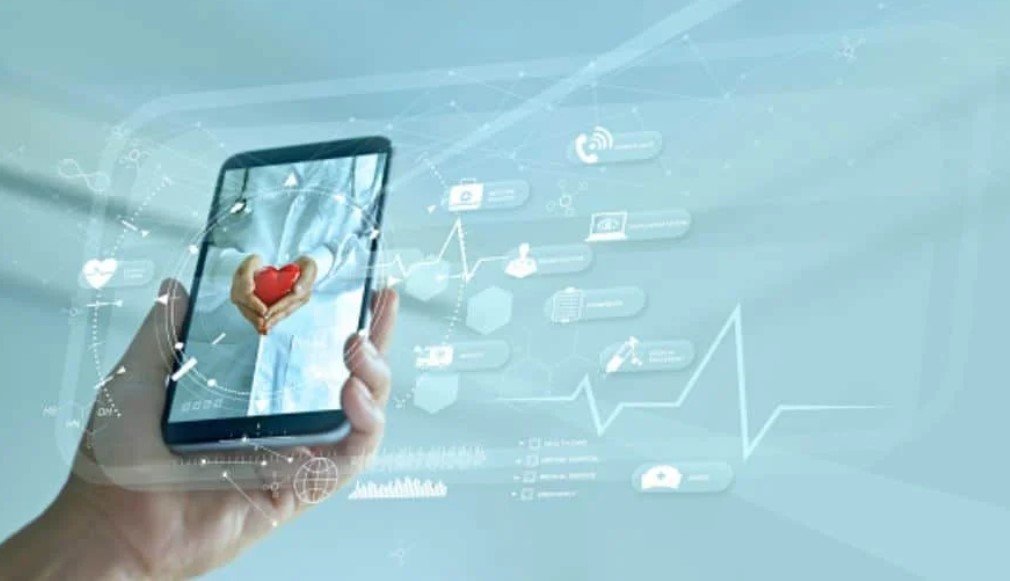Apps
Trends in Healthcare App Development for 2022

AI, IoT, and virtual reality innovate the healthcare industry. What other technologies are helping medical workers to do more?
The pandemic has brought on challenges, prompting healthcare systems across the world to adapt and change, especially regarding the way medical care is delivered.
While professional medical software and mobile health applications may have become somewhat commonplace, the industry is still bound to evolve, as more innovations are being introduced. To guide you, we have compiled a condensed list of trends to look out for when developing different types of healthcare systems.
Innovation is focused on patient data
A significant portion of medical services, including post-therapy, are moving toward in-home care. This is possible thanks to the advancements in remote patient monitoring, which uses the Internet of Things (IoT) devices to collect health data outside of a medical setting. According to Deloitte, the use of various wearables—blood pressure monitors, smart watches, electrocardiogram devices, etc.—to gather patient data is one of the growing healthcare technology trends in 2022.
In addition to tracking health vitals on the go, this approach eliminates infection risks associated with commuting and queuing. Remote monitoring also enables hospitals to efficiently allocate individuals requiring urgent or intensive care across limited physical facilities, while ensuring continuous treatment for those who are recovering. The data received from wearables can then be stored in the cloud for further analysis.
Artificial intelligence (AI) is trending due to multiple ways the technology contributes to improving the quality of primary care. According to a report published by McKinsey, the use of AI in healthcare has all the potential to deliver better treatment to more people, as well as prevent burnout of healthcare practitioners who often have to work several exhaustive shifts in a row. Today, systems powered by artificial intelligence are employed in screening procedures, leading to more accurate diagnoses.
It is also possible to utilize technology to handle administrative tasks, easing the burden for doctors and nurses. In addition, AI-driven chatbots can respond to patients’ questions. McKinsey predicts that by 2030, AI can enable 48% time savings for medical equipment preparers, as well as around 30% for medical assistants and technicians.
Personalized care is one of the prominent healthcare trends that can employ AI to improve outcomes, reports Ernst & Young. The approach focuses on analyzing how effective different medications and procedures are for a particular person’s age, gender, genetics, existing conditions, etc. The analytical findings help to select a course of treatment with the highest chance of success.
Another innovative healthcare trend is using virtual reality to change how medical professionals receive training, specifically through simulations, as observed by Forbes. Simulating rare and sophisticated surgeries prior to real-life ones enables doctors to refine skills and reduce risks. In neurology, virtual reality sessions help to recover patients to regain mobility at a faster pace. Other solutions that have emerged from this realm include treatments for chronic pain and mental illnesses.
A particularly useful part of the aforementioned trend, according to Redirect Health, is virtual waiting rooms, which enable hospital visitors to wait in their vehicle or a designated outdoor space. Patients would only enter the building, once they get a notification that the doctor is ready to see them. This helps to avoid unnecessary contact and thwart the spread of infections.
As stated by CB Insights, digital front doors are gaining popularity as they facilitate patients’ interaction with hospitals. Despite the name, digital front doors cover more than just booking an initial appointment. In fact, it’s an omnichannel engagement strategy that can cover everything from finding relevant healthcare providers to conducting remote consultations and making payments.
Innovative technologies offer numerous ways to facilitate the delivery of medical care, save time for doctors and patients, reduce risks, etc. Still, companies must not forget that the healthcare industry has strict standards and regulations, so app development is not a trivial matter. If you want to forego the lengthy steps of building a team and learning the pitfalls, consider hiring healthcare app developers from a reputable company to speed up the process, enabling doctors to save more lives sooner.
-

 Entertainment1 month ago
Entertainment1 month ago123Movies Alternatives: 13 Best Streaming Sites in 2026
-

 Entertainment2 months ago
Entertainment2 months ago13 Free FMovies Alternatives to Watch Movies Online in 2026
-

 Entertainment1 month ago
Entertainment1 month ago13 Flixtor Alternatives to Stream Free Movies [2026]
-

 Entertainment1 month ago
Entertainment1 month agoGoMovies is Down? Here are the 11 Best Alternatives






